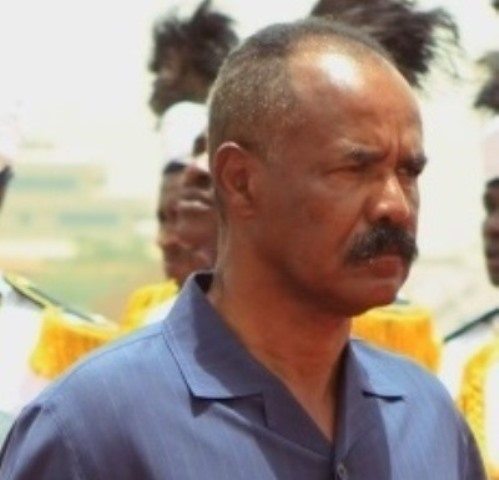Addis Ababa hosted the The first Conference on Climate Change and Development in Africa (CCDA-1), held from Oct.17-19, under the theme “Development First: Addressing Climate Change in Africa”.
under the theme “Development First: Addressing Climate Change in Africa”.
The Conference was organized by ECA’s (Economic Commission for Africa) African Climate Policy Centre (ACPC), a joint initiative of the African Union Commission, the African Development Bank and UNECA, within the framework of ClimDev Africa programme.
A press release from ECA, the at the opening of the conference described its objective as: ‘It is By bringing together policy makers, academics and practitioners, the conference aims to come out with concrete proposals on how to integrate climate change concerns into existing and future development policies, strategies, programmes and practices in Africa.’
Read the two press releases below to get a glimpse of the Conference. (I intend to provide you more highlight on the issues discussed in the coming days.)
First conference on climate change and development in Africa underway in Addis Ababa
ECA Press Release No. 126/2011
Addis Ababa, 17 October 2011 (ECA) – The UN Under Secretary General and Executive Secretary of the UN Economic Commission for Africa, Mr. Abdoulie Janneh, has reiterated his support for adaptation as Africa’s foremost strategy to tackle the multiple effects of climate change on the continent.
Addressing the opening session of the first annual Conference on Climate Change and Development in Africa (CCDA-I) which opened in Addis Ababa, Ethiopia this morning, Mr Janneh said that adaptation is not just one of the options for Africa, it is an obligation, given the formidable challenge that the phenomenon poses to Africa, it is a matter of survival for millions of rural Africans.
“That is why African leaders have said repeatedly that for Africa, adaptation is an existentialist issue and a serious cause for concern. Adaptation offers the chance to manage, spread risk and enhance choices, thereby contributing to sustainable development whilst dealing with social, economic and security threats posed by climate change”, he explained.
He however cautioned that “adaptation without rapid cuts in emissions to maintain global warming at its lowest possible level, would be futile”, according to the information and communication service of the ECA.
The three-day conference is expected to provide a forum for dialogue, awareness raising so as to mobilize effective commitment and actions on climate change by African stakeholders. It is organized by ECA’s African Climate Policy Centre (ACPC), a joint initiative of the African Union Commission, the African Development Bank and UNECA, within the framework of ClimDev Africa programme.
By bringing together policy makers, academics and practitioners, the conference aims to come out with concrete proposals on how to integrate climate change concerns into existing and future development policies, strategies, programmes and practices in Africa.
The theme of the conference is “Development First: Addressing Climate Change in Africa”, and it is deliberately chosen to highlight the need to put development at the centre of all climate change-related research, practice and policy.
The Conference comprises plenary sessions with keynote presentations on the broad subject of green economy in the context of sustainable development, followed by several parallel sessions. These sessions are complemented by plenary sessions that will inform the debates around the Conference theme.
The parallel sessions will provide an opportunity for the presentation of papers related to the Conference theme, with particular focus on the following sub themes:- (i) Climate Science, Data, Information and Service Delivery; (ii) Climate Resilience Development and Adaptation; (iii) Low Carbon Development in Africa and (iv) Economics and Finance.
Initially planned for about 300 participants, some 700 people attended the opening session of the conference. The keynote address was delivered by Dr. R.K. Pachauri, Director General of TERI and Chair of Inter-Governmental Panel on Climate Change (IPCC), while the Deputy Prime Minister and Minister of Foreign Affairs of Federal Democratic Republic of Ethiopia, Mr. Hailemariam Dessalegn, officially opened the conference.
Shortly after the opening session, the conference embarked on a two-hour high-level dialogue that saw policymakers, scientists and practitioners lurk horns on the theme of the conference. Panellists includedHon. Henri Djombo, Minister, Republic of Congo; H.E. Ms Jennifer Webster, Minister, Ministry of Finance, Guyana; Dr Tewoldeberhan Gebre-Egziabher, Director General, Ethiopian Environmental Planning Authority; Mrs. Connie Hedegaard, EU Climate Change Commissioner and Dr. R.K. Pachauri, DG TERI and Chair of the IPCC.
All speakers expressed optimism as to the outcomes of the conference, calling it a good start for the African Climate Policy Centre.
Some 30 media practitioners from all the five sub regions of Africa and the Diaspora are covering the event. They also plan to nurture working relationships and deepen their understanding of the challenges posed by climate change and how Africa is coping with its impacts.
***********
[The following text is from A Week in the Horn of Africa, the weekly press release of the Ministry of Foreign Affairs, Oct. 21, 2011 issue.]
Climate Change and Development in Africa Conference held in Addis Ababa
The first conference on Climate Change and Development in Africa (CCDA-1) was held this week in Addis Ababa at the United Nations Conference Centre. Organized by the ECA’s African Climate Policy Center, an initiative of the AU, the African Development Bank and UNECA, the three day meeting brought together some 700 participants from African member states, regional economic communities, river basin organizations, NGOs and civil society, the private sector, academia, and development partners. The conference was opened by Ato Hailemariam Desalegn, Deputy Prime Minister and Minister of Foreign Affairs of the Federal Democratic Republic of Ethiopia who called on African governments to put climate change adaptation as a central element in their national development plans. He emphasized that adaptation was the critical response to the impact of climate change and the need to stabilize atmospheric concentrations of greenhouse gases. He underlined the importance of the conference to provide guidelines and directions for the position of African leaders at COP 17, the climate change talks to be held in Durban in December.
Mr. Abdoulie Janneh, UN Under-Secretary-General and Executive Secretary of the UN Economic Commission for Africa (UNECA), also addressed the opening session, pointing out that adaptation was not just one of the options for Africa it was an obligation, but added that adaptation without rapid cuts in emissions to keep global warming to its lowest possible level would be futile. The keynote address was given by Dr. R.K. Pachauri, the Director General of TERI and Chair of the Inter–Governmental Panel on Climate Change. This was followed by a high level dialogue among several panellists who included the EU Climate Change Commissioner, Ministers from the Republic of Congo and Guyana and the Director General of Ethiopia’s Environmental Protection Authority. This underscored Africa’s development challenges in the context of climate change, noting how African countries are leading the climate change agenda, what this means for the continent’s future and Africa’s climate change negotiating position.
The title and theme for the conference was “Development First: Addressing Climate Change in Africa”, and four sub-themes were considered under this: Climate Science, Data, Information and Service Delivery; Climate Resilience Development and Adaptation; Low-Carbon Development in Africa; Economics and Finance. Its overall objectives were to establish a forum for dialogue, enhance awareness raising, mobilize effective commitment and actions through bringing together policymakers, academicians and practicing stakeholder with the aim of effectively bringing climate change concerns into a central place in development policies, strategies, programmes and practices in Africa. The conference also aimed to strengthen Africa’s position and participation in international climate change negotiations to ensure proper reflection of the continent’s priorities in a post-2012 international climate change regime.
The conference produced a number of recommendations. On the issue of Climate Science, Data, Information and Service Delivery, the conference emphasized the crucial roles of climate information in national development planning, of managing climate opportunities and risks and of mitigation and adaptation. There was a firm recommendation for member states to mainstream climate change in their development policies, planning and practice. Member states were encouraged to build up the capacity to collect, analyze and use climate data and information for decision makers at all levels. Regional centers should scale-up African-focused climate research to reduce prediction uncertainties in user-relevant climate variables, and use advanced technologies to improve collection and storage of data, as well as retrieval, analysis, information generation and dissemination.
On the sub-theme of Climate Resilience Development and Adaptation, the focus was on the socio-economic challenges and risks posed by climate-induced hazards and disasters, monitoring measures and informed policy responses for good climate risk management. Recommendations included a call for African states to strengthen their policies and interventions for effective climate change adaptation and increase investment on water control and management. Regional Economic Communities and other regional centers should establish work programmes for agriculture under the Cancun adaptation framework to link means of implementation with early warning systems, weather communication, irrigation, seed multiplication and technology-sharing. African negotiators on climate change should consider land-use efficiency and hydropower development as clean development options. Financing for investment could be sought through the Clean Development Mechanism of the Kyoto Protocol. Member states should build capacity for research into climate change adaptation in agriculture, water management, energy and transport.
The conference underlined the need to explore low-carbon development within the context of the green economy. It addressed energy-access challenges, the importance of financing for Reducing Emissions from Deforestation and Forest Degradation (REDD+) and of identifying opportunities in Land Use, Land-Use Change and Forestry (LULUCF) across Africa. It recognized that a future low-carbon pathway will require involvement of public and private sectors as well as sectoral collaboration. African member states should be involved with private and civil society to develop strategies to advance low-carbon development. They should also strengthen regional cooperation in service provision in energy (Ethiopia was congratulated for selling electricity to Djibouti), focus on advantageous areas in agriculture, and implement policies to promote access to affordable and clean energy services to reduce poverty and promote development.
The final focus was on the impact of climate change on development. The need for effective action was underlined including innovative financing mechanisms to adapt and mitigate the effects of climate change within the context of sustainable economic growth and poverty reduction. Action on climate and meeting development imperatives must be balanced. Member states should strengthen the capacity to assess risks posed by climate change and its economic implications. African negotiators on climate must negotiate a clear and agreed baseline for new finance to enhance transparency and build trust between developed and developing countries. They should clearly measure the cost of adaptation and mitigation and produce a range of estimates for the cost of adaptation and mitigation in Africa. These must include the development of projects and programmes for investment in line with development plans and priorities. Research institutes and the ECA/ACPC should leverage new funding through innovative engagement in the climate dialogue process, the green climate fund and the efforts of member states to build capacity of energy entrepreneurs in innovative financing mechanisms for climate-related investment.
****************
Check the drop-down lists at the top of the page to read more on related and other topics.





